Optimizing Control of CSTR Reactor Using PID and FOPID Controllers with Optimization Algorithms
Problem Definition
The stability regulation in a Continuous Stirred Tank Reactor (CSTR) poses a significant challenge in the realm of control systems. Specifically, determining the optimal gain value for controllers used in the system is paramount for enhancing the accuracy and consistency of results obtained from the CSTR setup. The precise control of concentration in the CSTR is crucial for achieving desired outcomes in various chemical processes. Currently, the reliance on PID and FOPID controllers for this task highlights the need for further optimization and fine-tuning to ensure efficient and effective control of the reactor. The limitations and problems associated with finding the correct gain values can lead to suboptimal performance, decreased productivity, and potential safety hazards.
Thus, there is a pressing need to address these issues and optimize the concentration control in CSTR systems to improve overall system performance and reliability.
Objective
The objective of the project is to optimize the concentration control in a Continuous Stirred Tank Reactor (CSTR) by designing a stable control system using PID and FOPID controllers. The project aims to enhance the accuracy and consistency of the system's results by implementing optimization algorithms such as PSO, GWO, and TLBO to determine the gain values for the controllers. By comparing the outcomes using MATLAB software based on response parameters, the project seeks to improve overall system performance and reliability.
Proposed Work
The main focus of the presented project is to address the stability regulation challenge in a Continuous Stirred Tank Reactor (CSTR). By optimizing the concentration control in the CSTR using PID and FOPID Controllers, the research aims to enhance the accuracy and consistency of the system's results. The project objectives include designing a control system for CSTR stability using the mentioned controllers, implementing various optimization algorithms such as PSO, GWO, and TLBO to determine gain values, and comparing the results obtained through the MATLAB software. The proposed solution involves utilizing PID and FOPID controllers in the design of a stable control system for the CSTR reactor.
The optimization algorithms, namely PSO, GWO, and TLBO, are employed to find the KP and KID values of the controllers, which are essential for system stability.
By evaluating response parameters like rising time, settling time, overshoot, undershoot, and Integral Square Error, the project seeks to analyze and compare the outcomes of each optimization algorithm. The use of MATLAB software enables the seamless implementation and execution of the code, allowing for a detailed comparison of the results in both graphical and tabular formats. Overall, the project's approach is geared towards achieving a robust and efficient control system for the CSTR reactor by leveraging the power of PID and FOPID controllers along with advanced optimization algorithms.
Application Area for Industry
This project can be utilized in a variety of industrial sectors where Continuous Stirred Tank Reactors (CSTR) are employed, such as chemical processing, pharmaceuticals, food and beverages, and wastewater treatment plants. These industries face challenges in maintaining stability and accuracy in their reactor systems, which can impact product quality, production efficiency, and overall operational costs. By implementing the proposed PID and FOPID controllers, the project can help in optimizing the concentration control within the CSTR, leading to enhanced system performance and improved product quality.
The benefits of applying these solutions include increased accuracy and consistency in controlling the reactor parameters, reduced energy consumption, minimized production waste, and improved overall process efficiency. Additionally, the optimization algorithms utilized in this project can assist in finding the precise gain values for the controllers, resulting in better control over the reactor system and improved performance metrics.
Overall, the project's proposed solutions can significantly benefit various industrial sectors by addressing the stability regulation challenges inherent in CSTR systems.
Application Area for Academics
The proposed project has the potential to enrich academic research, education, and training in the field of control systems and process optimization. By focusing on stability regulation in a Continuous Stirred Tank Reactor (CSTR) and optimizing the concentration control using PID and FOPID controllers, this research contributes to the advancement of knowledge in control engineering.
Academically, this project provides a practical application of optimization algorithms such as PSO, GWO, and TLBO in designing and tuning controllers for industrial processes. Researchers in the field of control systems can benefit from the code and literature generated by this project to explore new methodologies for enhancing stability and performance in various systems.
For education and training purposes, this project offers a hands-on approach to understanding the principles of control systems and optimization techniques.
Students pursuing degrees in engineering, particularly in the area of process control, can utilize the MATLAB code and results to gain practical insight into the implementation of controllers in real-world applications.
Moreover, MTech students or PhD scholars focusing on process optimization and control engineering can use the findings of this project to further their research and develop innovative solutions for complex control problems. By studying the performance metrics and optimization outcomes of PID and FOPID controllers in a CSTR system, researchers can apply similar methodologies to other industrial processes for improved efficiency and stability.
The use of MATLAB software and three different optimization algorithms adds a practical dimension to this research, enabling students, researchers, and practitioners to explore the potential applications of advanced control techniques in a controlled environment. The project's relevance lies in its ability to bridge the gap between theoretical knowledge and practical implementation, thereby enhancing the overall understanding of control systems and process optimization.
In conclusion, the proposed project on stability regulation in a CSTR reactor using PID and FOPID controllers, along with optimization algorithms, has the potential to enrich academic research, education, and training in the field of control engineering. Future research could focus on expanding the application of these techniques to other industrial processes and exploring the integration of machine learning algorithms for enhanced control system performance.
Algorithms Used
The Particle Swarm Optimization (PSO) algorithm was utilized to optimize the PID and FOPID controllers for the CSTR reactor. PSO works by simulating the behavior of a swarm of particles moving in the search space to find the optimal solution. Its role in this project was to find the optimal KP and KID values for the controllers, enhancing their efficiency and accuracy in controlling the reactor's temperature.
The Greedy Wolf Optimization (GWO) algorithm was also employed to optimize the controllers. GWO mimics the hunting behavior of wolves in locating their prey to search for the best solution.
By applying GWO, the project aimed to improve the performance of the controllers by fine-tuning their parameters for optimal control of the reactor's temperature.
In addition, the Teaching Learning Based Optimization (TLBO) algorithm was used to optimize the controllers' parameters. TLBO is inspired by the teaching and learning process in a classroom setting, where individuals exchange knowledge to improve their performance. By utilizing TLBO, the project sought to enhance the stability and efficiency of the controllers in regulating the reactor's temperature.
Overall, the implementation of these optimization algorithms in the project aimed to achieve a stable and precise control system for the CSTR reactor.
By finding the optimal KP and KID values through PSO, GWO, and TLBO, the project aimed to enhance the control system's performance, accuracy, and efficiency, contributing to the overall objective of optimizing the reactor's operation.
Keywords
CSTR reactor, PID controller, FOPID controller, control system, concentration control, optimization algorithm, MATLAB, Particle Swarm Optimization, Greedy Wolf Optimization, Teaching Learning Based Optimization, KP and KID values, stability, gain value, Integral Square Error, rising time, settling time, overshoot, undershoot
SEO Tags
CSTR reactor, PID controller, FOPID controller, control system, concentration control, optimization algorithm, MATLAB, Particle Swarm Optimization, PSO, Greedy Wolf Optimization, GWO, Teaching Learning Based Optimization, TLBO, KP value, KID value, stability regulation, gain value, Integral Square Error, rising time, settling time, overshoot, undershoot, response parameters, graphical comparison, tabular comparison.
| Shipping Cost |
|
No reviews found!














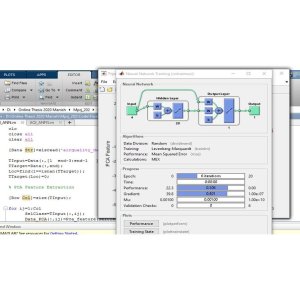
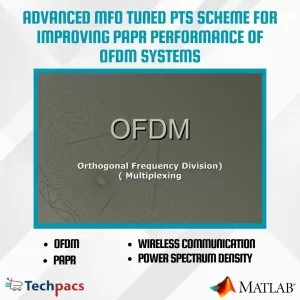
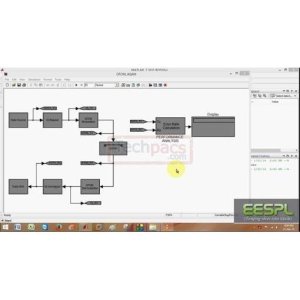
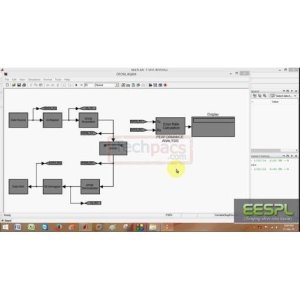

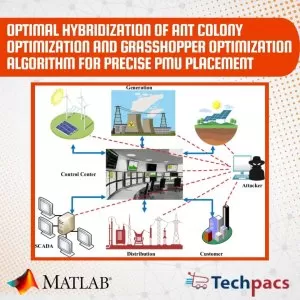































No comments found for this product. Be the first to comment!